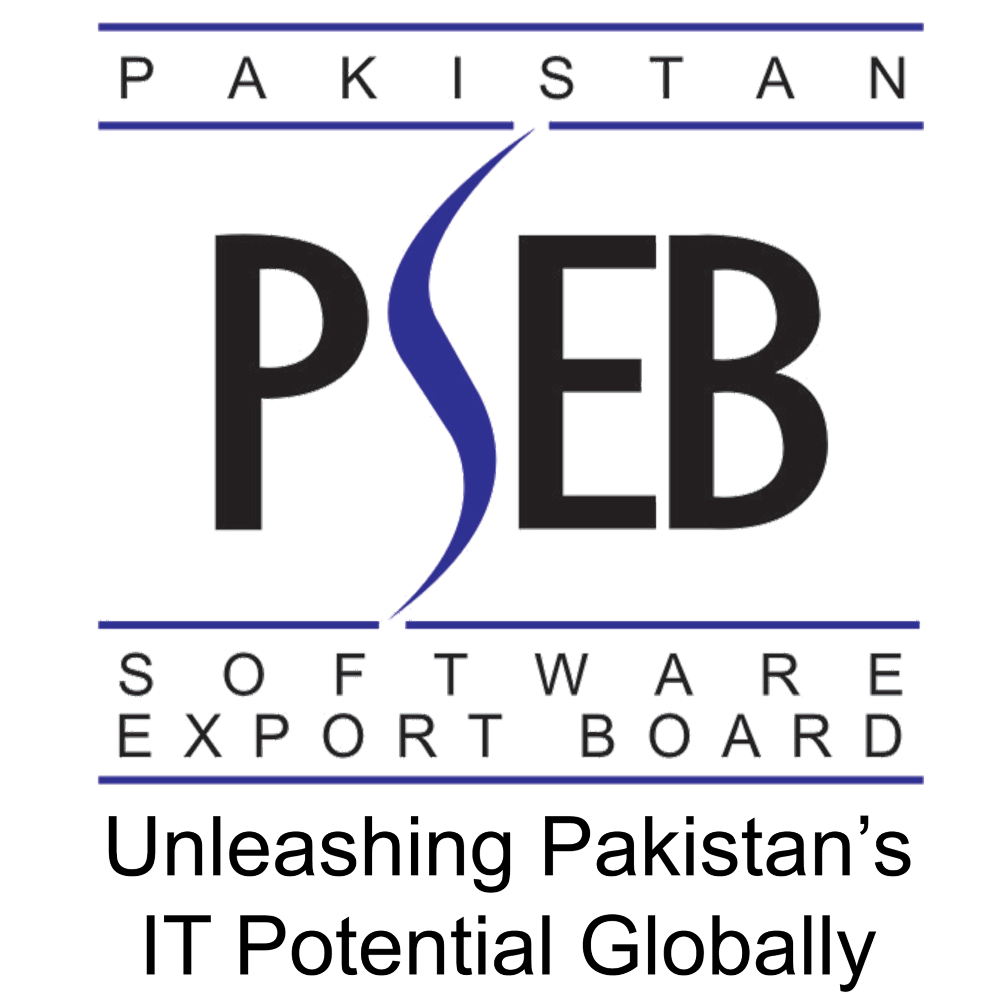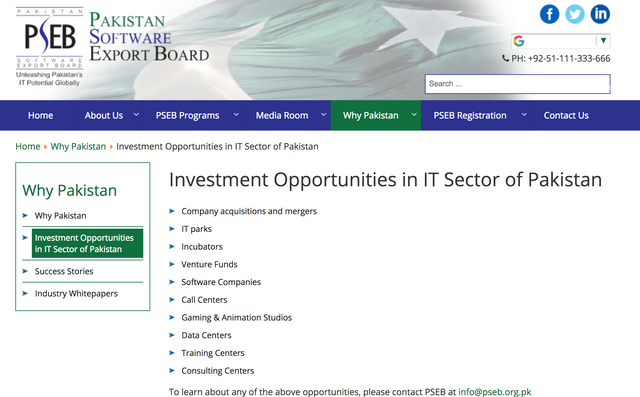Pakistan ICT and Internet Economy Report (Part 09/09)
Opportunities and Challenges for Investors
Pakistani industry is a fascinating market for investors, be it any sector. The potential of return on investments in the Pakistani markets has never been doubted, which is why a vast majority of foreign companies have invested in the various sectors over the past few years. The economists see that there are numerous opportunities for investors to step in and gain a strong return on their investments.
With a population of about 200 million people, followed by skilled human capital and favorable conditions, there exists a vast majority of potential buyers and customers that lead to the creation of an attractive market. Most of the people in the population belong to the middle class, hence, it gives investors a chance to tap the market with various diversifications based on different social classes.
As far as the telecom sector is concerned, the implementation of heavy taxes on the mobile companies that are operating in Pakistan has made it difficult for them to continue providing services at economical rates to end users. Even though the federal government has called off most of the taxes, the provincial tax still remains.
50% of the revenue of mobile phone companies is given in the name of tax. This has widely and negatively affected all of the stakeholders except for the government. Also, because of these strict policies, it is challenging for cellular companies to grow their services using 3G and 4G technologies. Unfortunately, these newly introduced technologies will have to face the hurdle set in the name of protection by the government. A lot of subscribers have already been hesitant to adopt 3G and 4G technologies right after the auction as they see no point in getting too familiar with the facility against so many rupees. While the stance of authorities remains set on the issue of taxes, a large amount of people belong to the middle class in Pakistan which is why the government will have to show leniency in their policies if they want more people to become literate through the Internet. No user would want to enlighten himself/herself through digital education at such a high cost when there are cheaper ways to get access to knowledge. This perception has brought a change in the mindset of many consumers, which is why large sums of investments by cellular companies have sunk. The requirement of verification for SIM cards in 2015 has brought further damage to companies. With no incentives to operate combined with a large amount of taxes, the industry is most likely to continuing falling if drastic measures are not taken. It’s about time that public authorities realize that developing such policies will not only repel any foreign direct investment in this sector but that it will also negatively impact the progress of the economy. If people are not given access to technology, they will continue to remain deprived of the digital revolution that is being observed globally. There is no point in defining constraints to the ways that people enlighten themselves. By not providing sufficient support for the ICT industry, the government is allowing the economy to be negatively impacted and Pakistan will not be able to match the pace of the global race.
Being a growth-driven economy, Pakistan’s ICT industry has seen times of booming growth in the past years. With the country’s growing digital infrastructure, many international companies have stepped in to revolutionize information and communication technologies for the people. Most of the development that has been happening in the ICT sector of Pakistan is mainly due to its own efforts. The industry has achieved exceptional growth with limited support from the government, although the situation is moving towards a better direction.
In Punjab, for example, public authorities have started participating actively in the IT sector's development. The Punjab Information Technology Board is a group that is run by the government of Punjab to modernize the techniques of governance and digitalize the overall culture. The board is doing its best to support the initiatives of local bodies in every possible way. Many technological inventions are also being financed by the PITB which has revolutionized the way things used to work in the past. The concept of entrepreneurship has gotten stronger than ever in the country and the Punjab Information Technology Board has taken credit for the concept of incubating startups. In the past few years, the Punjab Information Technology Board has managed to incubate and provide connections and opportunities for investments to the various startups from all over Pakistan through its well-structured platforms.
Pakistan, being a country with comprehensive investment policies, gives an opportunity to foreign companies to expand their services in the region for the ease of people. The big foreign IT companies that have started their operations in Pakistan believe that things will turn out to be good in terms of earning revenue. Despite repelling factors such as unstable political situations, power crisis, security issues and underdeveloped infrastructures, several IT companies have been successfully operating. The investment friendly policies have always been consistent and facilitating which is why the annual revenues crossed 2.5 billion USD in 2015. Some of the local boards that help facilitate favorable conditions for investors include the Pakistan Software Export Board (PSEB) and the Pakistan Software House Association (P@SHA).
PSEB is a body that works directly under the Ministry of Information Technology to ensure that local and foreign investors in the industry are getting the support they need in order to proceed with their investments. It manages the certification of IT companies so that quality standards are met properly. Having zero percent tax on IT exports was also an initiative of PSEB and this initiative proved to be a gateway for international clients who have allotted the making of software to operate in a friendly environment. Many of the Fortune 500 companies that exist in Western countries are clients of Pakistani IT companies and they use their services at economical rates.
P@SHA is a trade body that is built for IT and ITES. Its main function is to promote and facilitate the software services industry in Pakistan. Because of the enormous efforts that are put towards making things smoother in the IT industry, P@SHA is a registered body that has been built in order to develop an IT-friendly environment in the country. The association works along with the government and helps shape policies that can attract foreign investments in the sector. IT companies of Pakistan are funding this organization, as a result of which P@SHA organizes the kind of activities that build a good image of Pakistan and nurtures the entrepreneurs working in the tech industry. The association also organizes its ICT awards annually, just to support and acknowledge the work of IT companies. Tech companies including software houses from all over Pakistan participate in the competition which offers several categories and offers awards for unique ideas and exceptional achievements. The Pakistan Software House Association has also repeatedly been a winner of the Asia Pacific ICT Awards.
With the initiation of 3G and 4G technology, the growing trend of Internet usage is quite evident. Hence, the Pakistan Software House Association has started working on a cybercrime bill for Internet users in Pakistan. It is undoubtedly a smart move and the first draft of the bill has already been formed which includes several clauses for Internet security and the protection of user data. However, the Ministry of Information and Technology seems to have some reservations regarding the bill and hence have made amendments in the bill, leading to a debate among concerned authorities at P@SHA and PSEB. According to the amendments that have been made in the bill, Internet users will not be able to express their opinion and views freely. Internet users will not be able to talk or give opinion against any move of the government, religious blasphemy will also not be tolerated and any kind of information that highlights the shortcomings of the government could be banned. Now, this may seem like a bill that would be passed in order to make the digital identity of Internet users safe but the fact is, this seems like more of a try to control freedom of expression of the people. People who will not abide by the amended rules are going to face serious legal constraints. All the writers, journalists and bloggers that earn from sharing their opinions on the Internet and enlightening Internet users are seeing this bill as a way to manipulate common citizens.
One of the main challenges for investors in the IT sector is Pakistan´s tax structure, especially for exporting IT companies. Even though there are no specific taxes on the receipts of IT exports, the picture is not that clear as double taxation (provincial and federal) is making it difficult for exporting IT companies to grow. Pakistan´s government should take lucrative offers into consideration to attract further investments.
--- The End ---
Previous postings of this report:
Part 1: Introduction
Part 2: The Big Four of Pakistani Telecommunication
Part 3: New Technologies and Challenges for the Market
Part 4: Pakistan Going Mobile
Part 5: The Mobile Device Industry
Part 6: Getting Connected
Part 7: Selling Online – the E-Commerce Experience
Part 8: The First Steps of the Startups Community

